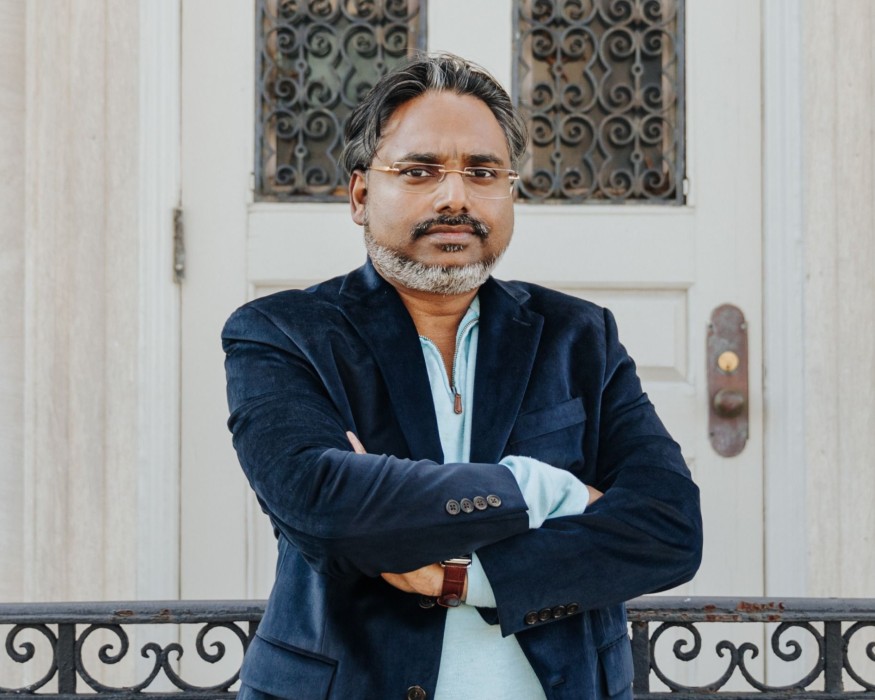
Marginalized communities often face limited access to healthcare, inadequate preventive services, and higher disease burdens due to socioeconomic, geographic, and systemic barriers. While medical advancements have improved patient care outcomes, the uneven distribution of healthcare resources exacerbates these disparities.
One of the biggest roadblocks to healthcare equity is data fragmentation, where critical patient information is siloed across disparate systems, preventing providers from having a complete picture of a patient's health. Without seamless data sharing, at-risk populations remain underserved, care coordination suffers, and healthcare gaps persist.
This is where Enterprise Architect Principal and Researcher Sadhasivam Mohanadas is leading the charge for change. Specializing in AI-driven interoperability solutions, he has been at the forefront of developing FHIR-compliant (Fast Healthcare Interoperability Resources) data exchange platforms and integrating Social Determinants of Health (SDOH) data into healthcare workflows. His work is reshaping how healthcare entities leverage data to improve access, quality, and patient outcomes.
"What inspired me to pursue this career was realizing how technology, data, and artificial intelligence could solve critical challenges and create tangible impact. Seeing how data could drive better outcomes for patients and providers sparked my passion for using technology to create meaningful change," he explains.
Meet the Expert: Sadhasivam Mohanadas and His Vision for Healthcare Equity
Sadhasivam Mohanadas has dedicated his career to solving critical challenges in healthcare interoperability and data-driven decision-making. With a strong background in enterprise architecture, big data analytics, and AI, he has led transformative projects that modernize healthcare IT systems, optimize provider data management, and enable secure, real-time health data sharing.
One of his most impactful contributions is the development of FHIR-compliant platforms that standardize healthcare data exchange, breaking down silos between hospitals, insurers, and care providers. He has also played a key role in incorporating SDOH data into clinical workflows, ensuring that social and economic factors such as housing stability, access to nutritious food, and transportation are considered in patient care decisions.
Sadhasivam's strong leadership has seen him collaborate with public health agencies, private sector stakeholders, and industry coalitions to drive policy changes and promote equitable, data-driven healthcare systems.
"Technology is more than just a tool—it's a catalyst for societal progress. Solving these challenges under pressure made me realize the depth of responsibility and opportunity in my field."
FHIR-Compliant Platforms and Social Determinants of Health: A Game-Changer in Healthcare Equity
FHIR is an industry-standard data exchange framework designed to improve healthcare interoperability. It enables secure, standardized data sharing between healthcare systems and ensures seamless access to Electronic Health Records (EHRs), lab results, and patient histories.
By implementing FHIR-compliant platforms, Sadhasivam Mohanadas has helped organizations achieve things previously thought impossible, like real-time data sharing between hospitals, payers, and community health organizations. Full visibility like this improves workflows and patient outcomes.
He has also streamlined healthcare processes by reducing redundant testing and administrative delays, giving professionals immediate access to patient histories and ensuring stakeholders can review relevant information before making diagnostic and treatment decisions. Additionally, he has improved care coordination for high-risk patients who depend on multiple providers and specialists, leveraging FHIR to enhance communication and efficiency.
Social Determinants of Health refer to non-medical factors that influence health outcomes, such as income level, education, employment status, and access to healthcare resources. Integrating SDOH data into clinical decision-making ensures that healthcare providers can consider the full context of a patient's history and circumstances, leading to more effective, personalized care strategies.
Sadhasivam has been instrumental in designing systems that embed SDOH data into EHRs, allowing doctors and care teams to identify barriers to care, such as lack of transportation preventing a patient from attending follow-ups. He's also recommended community-based resources that address social determinants, such as food assistance programs and housing support services.
A key part of his success has come from using predictive analytics to anticipate the needs of at-risk populations and deploy targeted interventions. These techniques can predict where resources should flow and provide critical preventative measure information to policymakers, which was particularly important during COVID-19.
"Leveraging AI-driven predictive analytics and real-time dashboards, we created tools to forecast case surges, allocate resources, and track hospital capacity. It was a high-pressure, high-impact project that directly contributed to saving lives and ensuring the resilience of healthcare systems during an unprecedented crisis."
Case Study: The Gravity Project
One of the most impactful industry initiatives in SDOH data standardization is the Gravity Project, a nationwide collaboration focused on defining how healthcare systems collect, integrate, and use SDOH data.
Mohanadas has contributed to applying Gravity Project frameworks within AI-powered data platforms, ensuring that SDOH factors are incorporated into real-world clinical workflows. His work has helped bridge the gap between public health policy and practical healthcare delivery, demonstrating how structured data can drive real change in patient outcomes.
"What was great about this project was how it enabled healthcare providers to assess and act on non-clinical factors like housing, food security, and transportation, promoting equity in care delivery," Sadhasivam recalls. "Integrating these factors was critical for community health."
Conclusion: Building a More Equitable Healthcare System
Sadhasivam Mohanadas is driving the future of healthcare equity by integrating FHIR-compliant platforms and SDOH data into real-world workflows. His mission is to bridge gaps, improve care coordination, and ensure that underserved populations receive equitable care. By leveraging AI, interoperability, and data-driven solutions, he has shown how technology can be the catalyst for a more inclusive, accessible, and fair healthcare system for all.
"Technology is not just about solving problems; it's about positively changing people's lives," he concludes. "Whether through AI-aided healthcare solutions, automation, or big data findings, all the innovative projects I have ever been involved in are driven by one principal question: Will this bring about any change in the real world?"












